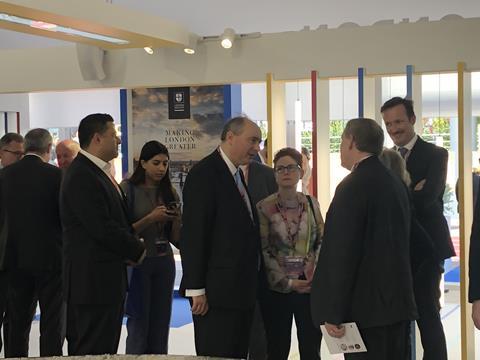Nick Walkley, speaking to Housing Today at MIPIM, warns of uncertainy created by “tinkering” planning policy and housing ministerial team
UK planning policy needs a “period of stability”, according to the former chief executive of Homes England.
Nick Walkley ran the government’s housing agency between 2017 and 2021, leaving his position amid rumours of a disagreement with then-housing minister Robert Jenrick.

Speaking to Housing Todaty at the MIPIM conference in Cannes, Walkley said the “political instability” around planning and the housing minister role was “not a good recipe for delivering a stable policy environment” and made it more difficult for housebuilders.
“If you’re thinking about a permission for something that will guide development for 25 years, it’s very difficult to invest in something like that if the rules change on an almost annual basis [or] if there’s another attempt at a planning framework,” he said.
Walkley, who was attending the conference on behalf of Avison Young, the real estate consultancy he now works for as president of its strategic advisory team in the UK, commented that the last year had seen “enough housing ministers and secretaries of state to put out a football team” and said constant tinkering with policy created “massive uncertainty”.
“I’m much more in favour of having a period of a period of stability that allows decisions to work through, rules and responsibilities to be properly identified,” he said. “I think it is much more far more fundamental than another go at mixing the rules around.”
A former local authority chief executive at both Barnet and Haringey councils, Walkley also commented on the importance of MIPIM attendance for the UK public sector, which has often received criticism for using taxpayer money to take part in the property event.
“Everybody knows there’s some contention about attending MIPIM,” he said. “Having been a public servant, trips to the south of France are a difficult call […] but the alternative side of that is that the world investment community are here and are out in force this year.”

This year’s festival is the second since its dramatic cancellation in 2020 in the wake of the first outbreak of coronavirus, with attendance estimated at around 23,000 – a 15% increase on last year.
Walkley said the pandemic hiatus had forced “a period of reflection” about what firms and public bodies were getting from the festival, resulting in a “much more measured, directed, business case approach”.
“If you want a conversation about your place and why it is a place worth investing in, this has got to be one of the places you have to be,” he said, adding that the UK’s presence this year was dominated by “high-level delegations focused on the investment opportunities [and] the major developments happening”.
The UK’s public delegation, led by investment minister Lord Dominic Johnson, included London, Liverpool, Greater Manchester, Belfast, Cardiff Capital Region, Newcastle, the West Midlands, West of England and Central South UK, which includes Portsmouth and Southampton.
Greater Manchester’s delegation included Eamonn Boylan, chief executive of the combined authority, Manchester City Council chief Jo Roney, and Mayor of Salford Paul Dennett.
Dennett, who is also deputy mayor of Greater Manchester, told Building that the authority’s presence at MIPIM was “really, really important”.

“When we think about what has been happening in Greater Manchester over the last few years, MIPIM has certainly been a key vehicle for getting the investment into the city regions,” he said. “To not be here places us at a disadvantage”.
Seen as being on the left of the Labour Party, former Corbyn backer Dennett could be seen as an odd fit at MIPIM, but he stressed that Greater Manchester’s need for private investment had been accentuated by long-term reductions in public investment from central government.
“We have had thirteen years of austerity and growth has been really important to Greater Manchester to try and offset that,” he said.










No comments yet